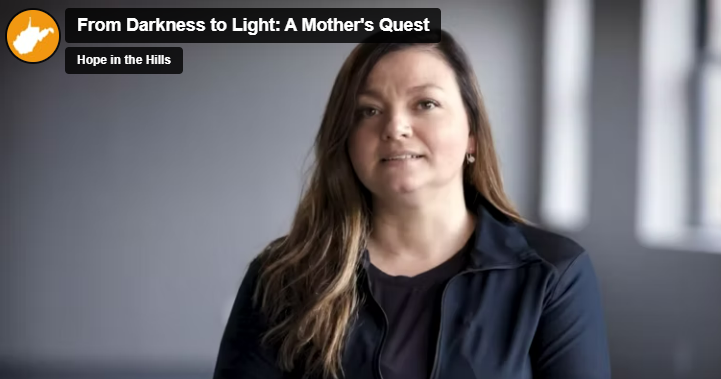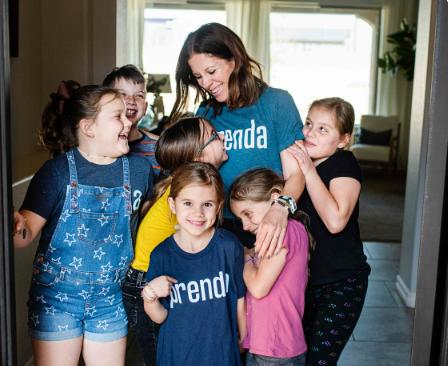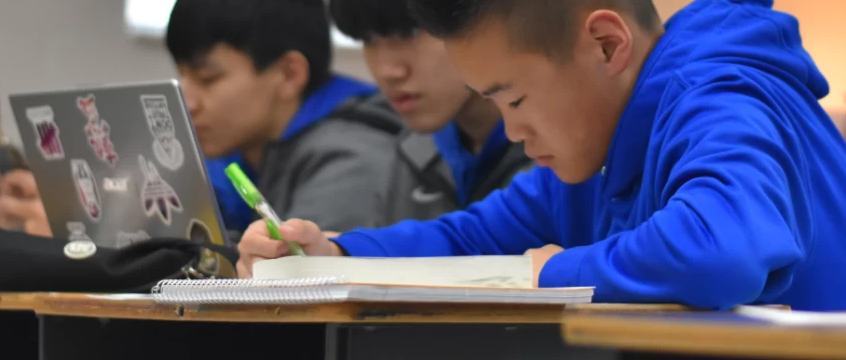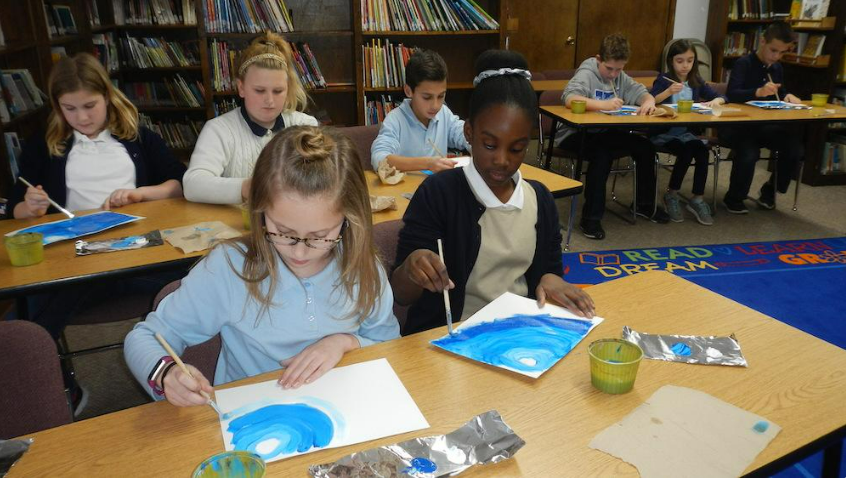
The Cardinal Institute of West Virginia launched Hope in the Hills to bring to the public eye first-person stories of families who feel disenfranchised by an injunction brought against the Hope Scholarship.
Almost immediately after a judge’s ruling shut down the state’s first education savings account program, emails flooded the Cardinal Institute for West Virginia Policy from families pouring their hearts out.
The father of an academically gifted son with attention deficit hyperactivity wrote that he was anticipating the financial flexibility afforded by the scholarship program as a route to a private school education.
“Because of the injunction, we will not be able to move forward with the education that he needs and we will also lose money since we will have to pay $500 to unenroll our children from their private school,” said Kevin Thompson
Another parent, Patricia Woodson, wrote of how the decision dashed her family’s dreams of a faith-based education for her son.
“It made me feel as though someone had pulled the rug out from under me,” Woodson said.
Woodson was referring to the July 6 decision in which Kanawha Circuit Judge Joanna Tabit ruled the program unconstitutional and halted it three weeks before schools were set to open for the 2022-23 academic year. The ruling, which has not been stayed during the appeals process, left more than 3,000 families who were granted a scholarship scrambling for alternatives.
The appeal has made its way to the West Virginia Supreme Court, which heard arguments on Oct. 4. (You can read the latest update on the case here.)
“We’re working-class people, so private school isn’t easy to afford,” Woodson wrote. “I hope the justice system of West Virginia would think of not only my child, but all the children impacted by this decision because they are West Virginia’s future.”
Though Cardinal Institute staff were getting the emails, they didn’t see families’ perspective reflected in media coverage of the legal challenge to one of the nation’s broadest education choice laws, which would allow parents to customize their child’s education through greater spending flexibility than traditional scholarship programs.
So, the institute, which supported the law, decided to share those emails on www.hopeinthehillswv.com, a special page devoted to raising awareness of the program’s impact on children.
“Our team at the Cardinal Institute recognized early on in the process of Hope Scholarship implementation that media coverage of West Virginia’s new program was largely focused on the political debates surrounding the program and the impacts it would have on the traditional public education system,” said Amanda Kieffer, the institute’s communications director. “We want this project to bring the focus back where it should be: on the kids.”
The site includes stories told by parents of children who planned to use the program to escape bullying, as well as parents whose kids’ medical conditions required therapies that overwhelmed district schools could not provide.
“It is our desire that, regardless of the outcome of the lawsuit against the Hope Scholarship, community leaders recognize the demand for alternatives to the traditional education system in West Virginia and the real need these children have for better options,” Kieffer said.

Prenda now operates in six states, partnering with state-accredited institutions to provide a tuition-free education option. Meeting in homes and other flexible locations, small groups of K-8 students engage in project-based learning and progress at their own pace under the direction of guides who come from the ranks of parents, teachers, and other community members.
With rising inflation and a stock market on the rocks, any big investment is worth watching. And with researchers reporting poor returns on student achievement in assigned schools during the pandemic, this makes any investment in education even more notable.
So with venture capitalists betting big on Prenda last week, committing $20 million to advance the company’s activities, parents and families around the country should take notice.
Prenda forms “microschools,” which are what they sound like: small learning communities of 10 students or fewer. The company caught parents’ and lawmakers’ attention during the pandemic as traditional schools were closed for in-person learning. Families looked for alternatives, and the learning pod and microschool models offered hope.
With a learning pod, parents led small groups of their own children, along with the children of their friends and neighbors, in learning groups that resembled homeschool co-ops. Microschools are similar, though organizations such as Prenda and Acton Academy Affiliate Network help create these small schools that are similar to reduced-size private schools.
Not all the attention from lawmakers was good. In fact, policymakers around the country tried to impose rules and regulations that treated microschools and learning pods like at-home daycare operations. Daycare regulations can be overly bureaucratic and apply to children who are younger than school age, making the rules a poor fit for microschools and pods.
The collision of heavy-handed regulation and increasing learning pod enrollment risked crushing these viable civil-society responses to school closures during COVID.
Some state officials recognized the mismatch between daycare rules and the new learning innovations, though. In West Virginia, lawmakers adopted a proposal earlier this year that allows for the creation of learning pods and microschools. State officials defined learning pods as “voluntary” associations of parents that may or may not involve tuition payments, allowing parents to educate their children at home and the children of friends and neighbors who are not satisfied with the options at an assigned public school.
Parents will measure student progress with nationally norm-referenced tests or other assessments, providing transparency for families and taxpayers. West Virginia’s proposal also protects the creation of microschools, in the form of small, private schools.
Nationally, public school enrollment has dropped by 1.2 million children since 2020. In West Virginia, public school numbers have fallen by 21,000 children since 2017. Whether this signals widespread parent dissatisfaction with assigned schools or that students are falling through the cracks – or both—parents and children need options outside the assigned system.
Which brings us back to learning pods and Prenda.
The company has expanded well beyond Arizona today and serves some 3,000 students in six states across 300 microschools. The company has announced that it will be expanding into other states. For West Virginia families, the new learning pod and microschool law will not jeopardize families who choose to homeschool. But families can also create their own learning pod, and parents can apply for the state’s new Hope Scholarship, an education savings account option that also originated in Arizona. Families should even be able to use the Hope Scholarship to create a microschool, which makes Prenda’s expansion so notable.
Federal officials have sent some $200 billion in taxpayer resources to schools during the pandemic, and, as of last fall, some $150 billion remained unspent—all while achievement scores and enrollment are falling.
Meanwhile, savvy parents are now making more choices about how and where their children learn, in West Virginia and elsewhere. The savvy investors are watching.

School leaders at Teays Valley Christian School in Scott Depot, West Virginia, believe students are uniquely designed with spiritual, intellectual, physical, and social gifts, and therefore possess various learning styles. They see themselves in a complimentary role with the home and church to produce individuals who reflect a Christian world view and fulfill God’s purpose in their lives.
Editor’s note: This news story appeared Tuesday on West Virginia’s wchstv.com.
With the deadline for applications approaching, more than 2,000 students in West Virginia have been awarded the Hope Scholarship education savings account for the upcoming 2022-2023 school year, the state Treasurer’s Office said.
The Hope Scholarship provides families with public money to help pay for private or religious schools or to home-school their child. The scholarship amount varies each school year. For the 2022-23 year, it will be nearly $4,300.
The program is facing a legal challenge. A lawsuit was filed on behalf of several West Virginia parents is seeking a judgement and an injunction against the Hope Scholarship program.
A news release from the state Treasurer’s Office said the application period for the upcoming 2022-23 school year will remain open through May 16. As of April 29, the Treasurer’s Office had awarded the Hope Scholarship to 2,236 West Virginia students.
To continue reading, click here.

Faith Christian Academy in Martinsburg, West Virginia, is one of 119 private schools in the state serving nearly 14,000 students. The school’s mission is to provide the highest quality academic and biblical world-view training in an environment that encourages spiritual, academic, social, and physical growth.
Editor’s note: This article appeared Monday on West Virginia’s wvmetronews.com.
More than 1,800 students have been ruled eligible already for the new Hope Scholarship program to pay for educational costs of students leaving the public school system.
By the end of this past Friday, 1,830 students were approved for the program, said Amy Willard, West Virginia’s deputy treasurer for savings programs. The application period began March 1.
“Just a kudos point here,” said state Treasurer Riley Moore, speaking at a Hope Scholarship board meeting Monday. “The statute required us to approve an application within 45 days, and Amy and her team have worked through thousands of these already since we’ve gotten off the ground, which I think has been a monumental lift on her part.
“So obviously there’s a very clear appetite for the program out there.”
The Legislature passed and the governor then signed a bill establishing the Hope Scholarships in 2021, providing money for students leaving the public school system to use for a variety of financial costs. West Virginia’s program also allows students old enough to enter the school system for the first time to be eligible immediately.
The Hope Scholarship amount will vary annually depending on the amount of state aid funding per pupil provided to county boards of education for public school students. The scholarship amount for the 2022-23 year will be $4,298.60.
To continue reading, click here.